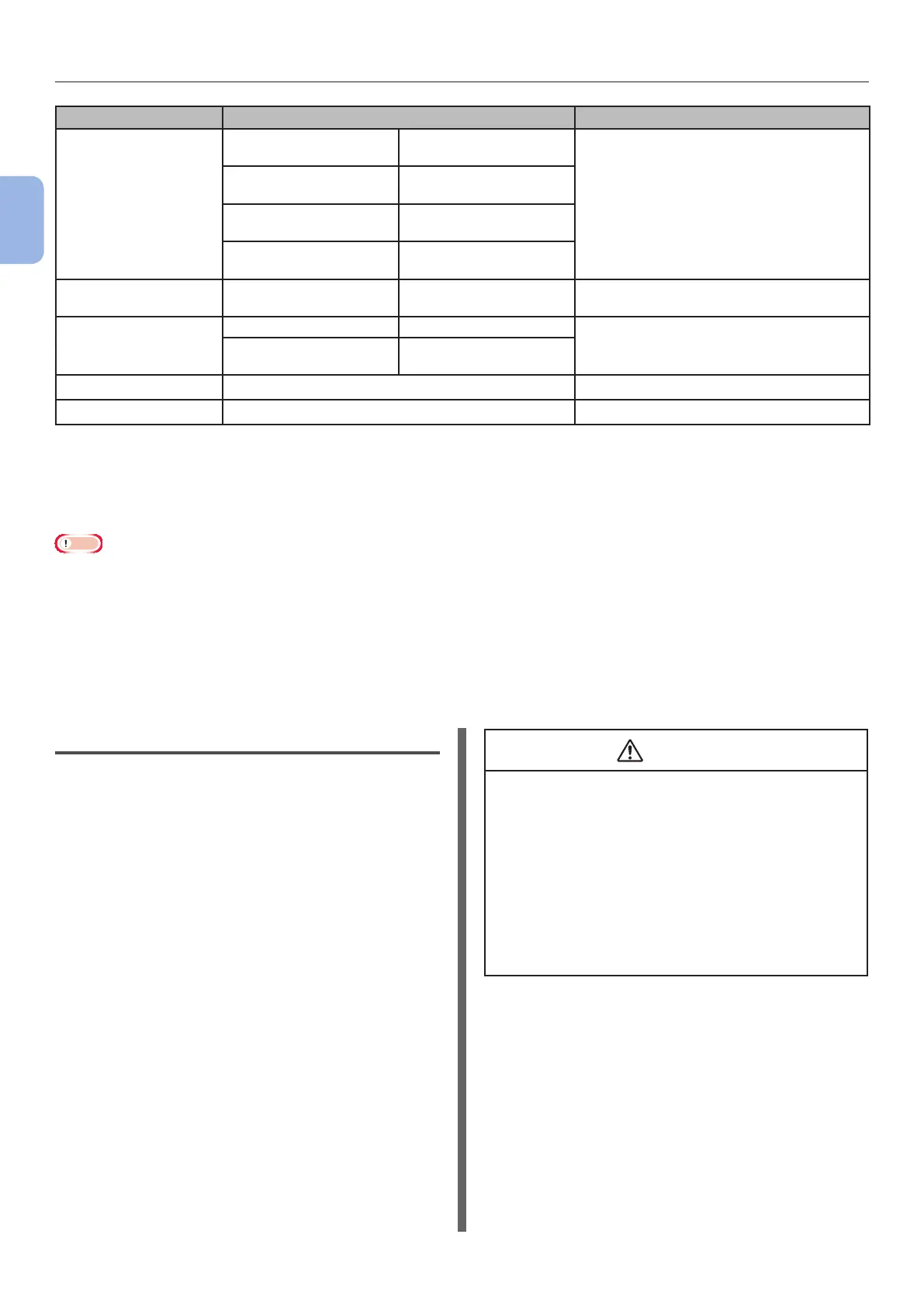- 54 -
Supported Paper
2
2. Printing Basic Operation
Paper Type Paper Size mm (inch) Paper Weight
Envelope Com-10 104.8 x 241.3
(4.125 x 9.5)
Envelopes should be 85 g/m
2
paper, and
ap parts of envelopes should be folded
DL 110 x 220
(4.33 x 8.66)
C5 162 x 229
(6.4 x 9)
C4 229 x 324
(9 x 12.76)
Index card Index card 76.2 x 127
(3 x 5)
Label A4 210 x 297 0.1 - 0.2 mm
Letter 215.9 x 279.4
(8.5 x 11)
Partly-printing paper
Subject to the plain paper*
1
64 to 256 g/m
2
Color paper
Subject to the plain paper*
2
64 to 256 g/m
2
Use paper that meets the following conditions*
1
:
● Paper that meets the conditions for plain paper.
● An ink used for a part printing is heat resistant (230°C).
Note
● When specifying a printing area, please take into account the differences of printing position as followings:
Print start position: ±2 mm, Paper skew: ±1 mm/100 mm, Image stretch: ±1 mm/100 mm
(when paper ream weight is 80 g/m
2
)
● This printer cannot print on an ink.
Use paper that meets the following conditions*
2
:
● A pigment or an ink used to color paper is heat resistant (230°C).
● Paper that has same characteristics with light paper and used for an electronic photo printer.
Paper Recommendations
Your printer will handle a variety of print media,
including a range of paper weights and sizes.
This section provides general advice on choice of
media, and explains how to use each type.
The best performance will be obtained when
using standard 75 - 90 g/m
2
paper designed for
use in copiers and laser printers.
Use of heavily embossed or very rough textured
paper is not recommended.
Pre-printed stationery can be used, but the ink
must not offset when exposed to the high fuser
temperatures used in the printing process.
CAUTION
● Envelopes should be free from twist, curl or
other deformations. They should also be of the
rectangular ap type, with glue that remains
intact when subjected to hot roll pressure fusing
used in this type of printer. Window envelopes are
not suitable.
● Labels should also be of the type recommended
for use in copiers and laser printers, in which the
base carrier page is entirely covered by labels.
Other types of label stock may damage the printer
due to the labels peeling off during the printing
process.
